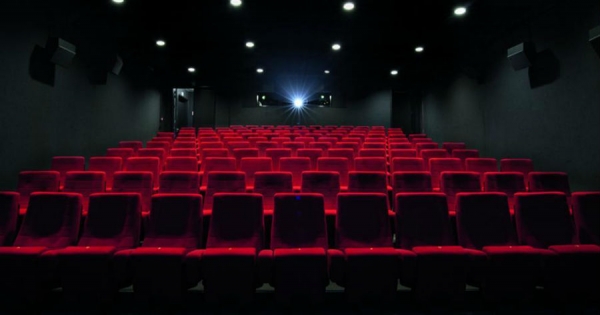Just back from a lecture tour around Italy, and I heard them in taxis, in hotels playing background music, and in cars passing in the street with the radio on loud – in every city. Often, the listeners are singing along, demonstrating a level of English ability that is sometimes well beyond their general level of competence. It’s a great language-learning tool – and I’ve had exactly the same experience in my own encounter with other languages. When I was learning Portuguese in Brazil, my samba-ese far exceeded by general skill. But the musical dimension had all sorts of benefits. It gave me confidence. I felt I was beginning to identify with the culture. And I could drop musical quotations into my basic Portuguese that delighted both me and my hosts.
So why isn’t there always the same experience in the cinema? On my Italy tour, I was in a different hotel every night, and occasionally flicked through the TV channels. I glimpsed many English-language films, and every one was dubbed into Italian. What an opportunity missed! Same thing happened in Germany. I love watching foreign films in their original languages, with English sub-titles. It’s a totally different experience. One of my favourite films is La Nuit Americaine – Day for Night – and I’ve watched it both in French and dubbed into English. There’s something bizarre about seeing people with distinctively French expressions and gestures interacting with English voices. And my Italian friends on this trip told me they felt exactly the same watching English-language movies dubbed in Italian.
But the climate may be changing, and in this week of the launch of the third edition of CEEL I read news reports from different countries proudly announcing that it’s now possible to watch English-language films in the original language. And Italy is among the headlines! The website Wanted in Rome has a report about the ‘growing number of cinemas in Rome showing movies in their original English-language versions, with subtitles in Italian’, and lists eighteen of them. In Spain, Murcia Today reports that the Hornillo multicine shows Spanish-language films throughout the week, but every Tuesday shows English language originals – this week on 27 November The Girl in the Spider’s Web and The Guernsey Literary and Potato Peel Society. Might these initiatives spill over into television?
The mood seems to have been building up this year. I don’t recall such developments making online headlines before. In March, a teacher of English at a lycée in the town of Béziers, southern France launched a petition on Change.org calling for an end to the dubbing of foreign films and TV series and asking for all foreign programmes broadcast in their original version. She commented: ‘People say the French have problems with foreign languages but it is because they do not have the opportunity to hear them regularly enough.’ And the headline of the report is sympathetic: ‘Why it’s time France stopped dubbing English-language films and TV series’. For adults, of course, not for kids who are still learning to read.
It’s already happened in some countries. A report last year in Dutch Review headed ‘Why are the Dutch so good at speaking English?’ comments:
‘Fact is that the Dutch get in touch with the English language early in life through television. They don’t dub any movies or series, and contrary to other European countries like Spain, Germany or France you can watch everything on TV in original language while reading the subtitles in Dutch. This means that the kids in the Netherlands have a much more natural approach when it comes to learning and speaking English propelling them well ahead of their peers in other countries.’
I’ve found similar comments in relation to Sweden, Norway, and Denmark. And as a regular visitor to the Netherlands (I have a daughter living there) I have to concur with the reporter. But my remarks are anecdotal. It would be really interesting to see a current survey on dubbing practices worldwide – and not just for English, but for all languages. I remember reading an English Proficiency Index report a few years ago which pointed out parallels between proficiency and subtitling. There wasn’t a total correlation (e.g. in Poland and Germany), and there were some complicated scenarios in places where the choice of ‘subs or dubs’ raises issues of endangerment and identity (such as Quebec). Practices evidently vary greatly worldwide.
David Crystal is one of the world’s foremost authorities on language, having published extensively over the past fifty years on his research work in English language studies. An internationally renowned writer, editor, lecturer, and broadcaster, he received an OBE in 1995 for his services to the study and teaching of the English language. He is Honoury Professor of Linguistics at the University of Wales, Bangor, and was made a Fellow of the British Academy (FBA) in 2000. David lives in Holyhead, Wales, where he is the director of the Ucheldre Centre, a multi-purpose arts and exhibition centre.







